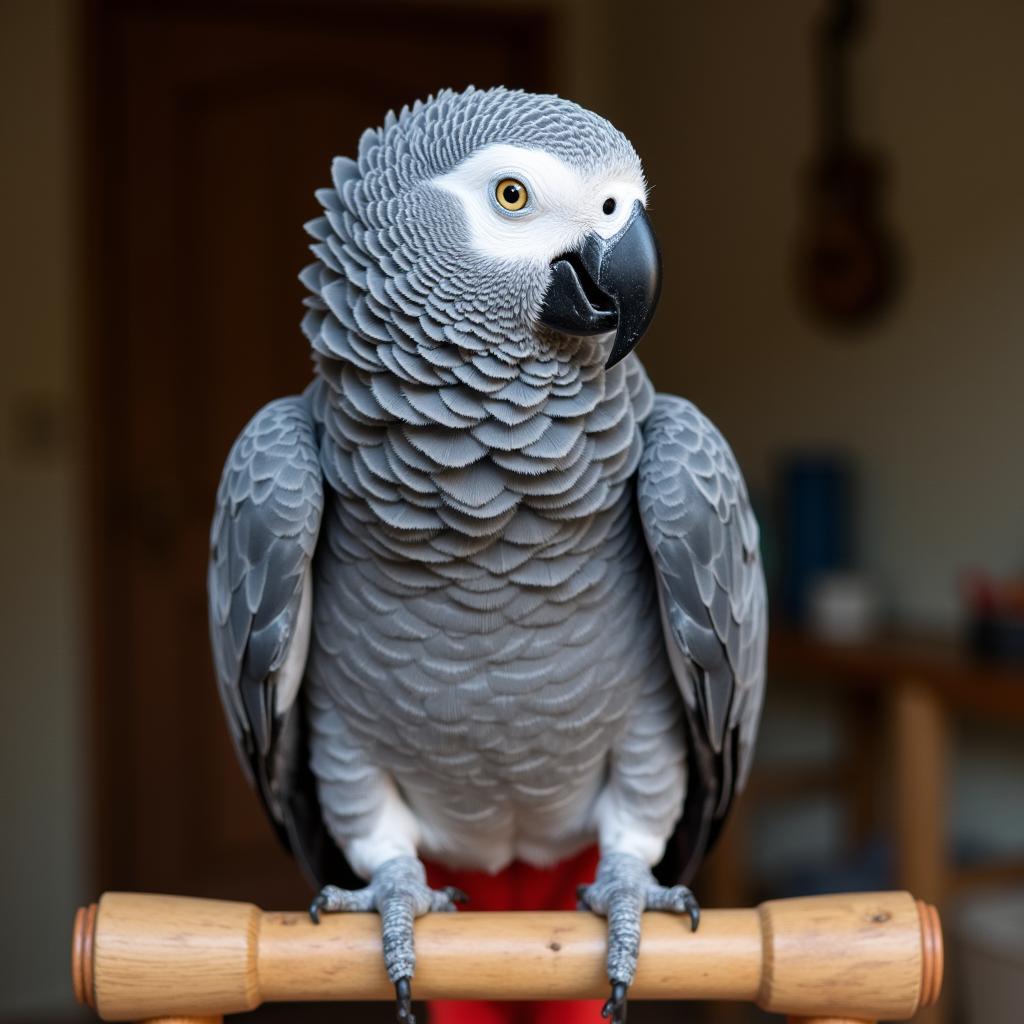African Grey Life Expectancy: Separating Fact from Fiction
The African Grey Parrot, known for its striking beauty and exceptional intelligence, is a coveted companion animal. Aspiring bird owners often wonder, “How long does an African Grey Parrot live?” While the answer seems straightforward, it’s actually more nuanced than you might think. Let’s delve into the fascinating world of African Grey Life Expectancy and uncover the truth behind the numbers.
Unveiling the Average African Grey Lifespan
The average lifespan of an African Grey Parrot in captivity is often cited as 40-60 years. However, this range can be misleading. Numerous factors, beyond simple genetics, significantly influence how long these intelligent birds live.
Factors Influencing an African Grey’s Lifespan
Understanding the dynamic interplay of various elements is crucial to accurately gauging an African Grey’s potential lifespan:
- Diet and Nutrition: A balanced diet rich in fresh fruits, vegetables, and high-quality pellets is paramount. Seed-based diets, while common, lack essential nutrients and can contribute to health issues that shorten a bird’s life.
- Environment: African Greys are highly social and intelligent creatures requiring mental stimulation and ample space. A cramped cage with limited enrichment can lead to stress, depression, and a decline in overall health.
- Veterinary Care: Regular checkups with an avian veterinarian are non-negotiable. Early detection and treatment of health issues are crucial for ensuring a long and healthy life.
- Genetics: Like all living beings, genetics play a role. While we can’t control a bird’s genes, selecting a bird from a reputable breeder known for healthy lineages can increase the chances of a longer lifespan.
 An African Grey Parrot enjoys a healthy meal of fresh fruit
An African Grey Parrot enjoys a healthy meal of fresh fruit
Debunking Common Myths About African Grey Lifespan
Several misconceptions surround the lifespan of African Grey Parrots. It’s time to set the record straight:
- Myth: All African Greys live to be 80 years old.
- Reality: While some individuals may surpass the average lifespan, reaching 80 years is an exception, not the rule.
- Myth: Providing only seeds is sufficient for an African Grey’s dietary needs.
- Reality: An all-seed diet is detrimental to an African Grey’s health, leading to fatty liver disease and other serious conditions.
- Myth: African Greys are low-maintenance pets.
- Reality: These intelligent birds require significant time, commitment, and resources to thrive.
Signs of a Healthy African Grey
A thriving African Grey exhibits these telltale signs:
- Bright, Alert Eyes: Clear, attentive eyes indicate good health.
- Smooth, Glossy Feathers: A healthy plumage is a sign of proper nutrition and overall well-being.
- Active and Playful Disposition: A lively and engaged bird is likely in good physical and mental health.
- Regular Eating and Drinking Habits: Changes in appetite or water consumption can signal underlying health issues.
 A healthy African Grey Parrot displays its vibrant plumage
A healthy African Grey Parrot displays its vibrant plumage
Extending the Life of Your African Grey: Practical Tips
Providing optimal care is the key to helping your African Grey live a long, fulfilling life:
- Offer a Diverse and Nutritious Diet: A variety of fresh fruits, vegetables, high-quality pellets, and occasional healthy treats is essential.
- Create a Stimulating Environment: Provide ample space, plenty of toys, and opportunities for social interaction.
- Prioritize Regular Veterinary Checkups: Early detection and treatment of health issues are crucial.
- Build a Strong Bond: Spend quality time with your bird, engaging in play, training, and socialization.
“A well-cared-for African Grey Parrot can bring joy and companionship for decades,” says Dr. Jane Goodwing, a renowned avian veterinarian. “Providing a balanced diet, enriching environment, and regular veterinary care is essential for their long-term health and well-being.”
Conclusion
While the question of “african grey life expectancy” doesn’t have a single definitive answer, we know that providing excellent care is paramount. By focusing on their physical and emotional needs, we can ensure our feathered companions enjoy long, healthy, and fulfilling lives. Remember, a happy and well-cared-for African Grey is more likely to reach its full potential lifespan.
For more insights into African Grey care and well-being, explore our article on african grey liver disease symptoms.


